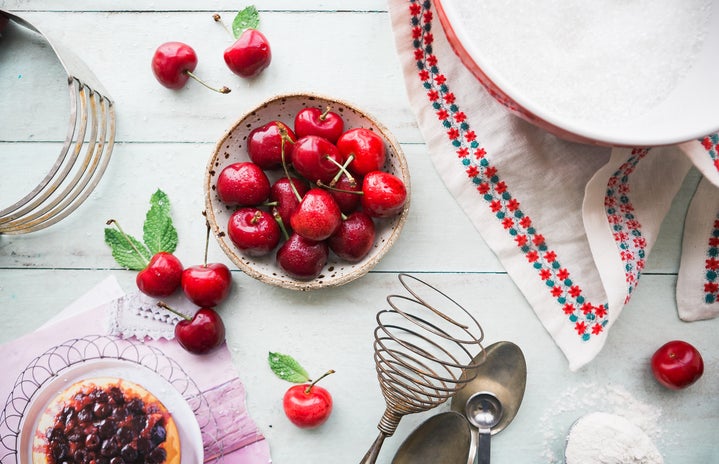I have been thinking about writing an article like this for some time now but I didn’t feel I had anything new to say or any authority with which to say it, so I decided to be my own case study and test out an idea I got from reading a book by Dr. William Davis MD called Wheat Belly. The book talks about the misconceptions humans, namely Americans, have about the way the body breaks down food and how certain foods affect us. Dr. Davis writes that the age-old idea of “calories in calories out” is actually a scientifically proven fallacy that has too much traction in traditional medicine and personal opinion to be disavowed by contradictory evidence.
Dr. Davis goes on to say that its not actually the fat in food that makes us gain weight or prevents even thin fit individuals from being able to loose that lower belly fat, the culprit is actually insulin. When the body’s Glycemic index rises, it triggers fat retention, especially visceral fat (belly fat). But what causes glycemic index to rise? This question has been researched extensively but the answer has remained largely unknown to the general public, we’ll get into why a little later. Wheat, sugar, and other carbohydrates have been proven to raise glycemic index more than any other foods. Wheat, more than anything else, has been shown to have seriously adverse health effects. This fact is usually pretty jarring for people when they hear it for the first time and is usually followed by the question, “But what about heart healthy whole grains”? Whole grains have long been incorporated into the food pyramid as an important part of a balanced diet, however the only thing in wheat products that could be considered heart healthy is the relatively nominal amounts of fiber they contain, which could easily be garnered from a serving of broccoli, avocado, peas or a number of other vegetables that actually contain significantly more fiber than wheat products.
The problem with wheat is the way it gets digested when it enters the body, wheat carbohydrates (whole grain, seven grain, multi grain, its all the same) contain amylopectin A, which causes a more significant spike in blood sugar than just about any other food.“When blood sugar spikes it provokes visceral fat accumulation, the body’s means of storing excess energy. When visceral fat accumulates the flood of inflammatory signals it provokes causes tissues to respond with less insulin. This so called insulin resistance means that the pancreases must produce greater and greater quantities of insulin to metabolize the sugar from the carbs” (Davis 63).
Alright I know that was a little confusing so lets do a quick recap. Carbohydrates, especially wheat, contain amylopectin A which is extremely easy to digest as sugar which cause blood sugar and glycemic index to rise thus and the body to respond by producing and retaining belly fat. However it does more than just make your jeans a little tight, wheat is also an appetite stimulant, and is highly addictive. Ever hear your friends (or yourself) say things like, I’m obsessed with bread, pasta, or whatever other kind of wheat product it might be? There’s more truth to it that you might think, when wheat is broken down during digestion it produces exorphines in the brain, which causes an addictive response almost identical to that of an opiate drug.
By now you’re probably thinking that if all of this is true why have you not heard it before? That is a good question and the answer lies with good old Uncle Sam and General Mills. The fact of the matter is the food companies control billions of dollars and have a significant say in how their products are perceived and marketed. Exposing wheat as one of the sole contributors to obesity, diabetes, and possibly even disorders like autism is not exactly good for business. Wheat is in just about every packaged food you can think of, even some you wouldn’t think of like veggie burgers, packaged deli meats, protein bars and so many more.
Wheat hasn’t always been so detrimental to health, if you walked into a field of wheat a few hundred years ago it would look a lot different than it does today. Genetic modification and cross breading of genes has created an entirely new strain of wheat that is optimal for harvest and abysmal for the body. Have you ever wondered why obesity was never a problem until about 50 years ago? Contrary to what Michele Obama says, it’s not just that we need to “get moving.” The problem is that the food we are told is heart healthy is actually making us sick.
Like I said at the beginning I wouldn’t be as apt to believe all of this if I hadn’t been my own case study. I was a little skeptical when I first began researching, I have always had a sensitive stomach and when I was younger I just assumed there was nothing I could do about it. I was always tired and couldn’t run more than half a mile without feeling like my heart would pound out of my chest, I also struggled with dyslexia and focusing in school. Like anyone else, I assumed these were all just inevitable parts of who I was.
When I started college three years ago I took up running and would struggle every morning to run two miles at about an eleven minute pace and feel like I had just run the Boston Marathon afterward. One day I decided I wanted to try eating better in hopes my running would improve, so I started researching and slowly started making changes. I cut out all dairy products and instantly felt like a new person. About a year later became a vegetarian and started eating a more plant-based diet. By this time I was in significantly better shape and was running between 5 and 9 miles regularly. However, I was still experiencing chest pain and shortness of breath after certain meals, so after reading this book I decided to try eliminating all wheat products for two weeks to see if it made a difference. After a few days I noticed I had more energy, the discomfort I was experiencing after eating had completely disappeared and my cravings for food late at night went away. So though I cannot speak for everyone I will say I strongly believe that you get out what you put in, and that goes for nutrition as well as life. If you put good things into your body it will do good things for you and, to quote Mumford and Sons, “where you invest your love you invest your life.” For me, it’s worth a little extra effort to cook my own food, which I have actually come to really enjoy.
I hope Collegiettes learned something new from this, I’m not saying you have to completely change your diet or lifestyle, but I think everyone deserves to at least have the information to be able to make a change if they feel they need one.


